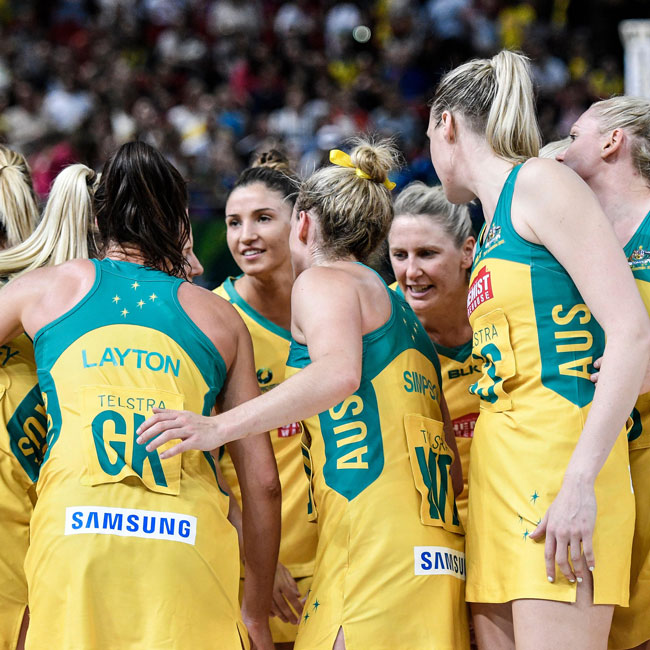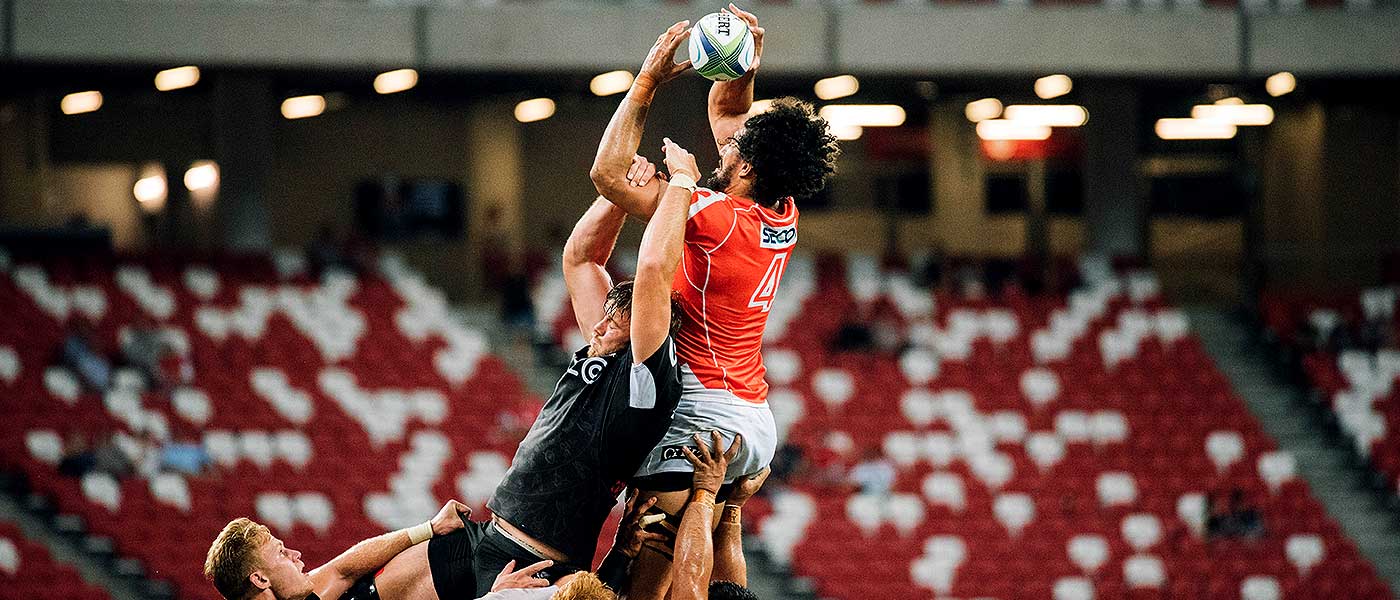The 6 ways corporate values fail

The 6 ways corporate values fail
Opinion + AnalysisBusiness + Leadership
BY The Ethics Centre 14 AUG 2017
The Ethics Centre works with companies and organisations of all shapes and sizes. We know how different a bank with 40,000 employees is to a small non-profit or a university, or even to a division of the military. Despite that, the same issues arise in business time and again. A failure to live up to corporate values.
One of the first things we do when we start working with an organisation is helping them to define, refine, or re-build their purpose, values, and principles – what we would call an ethical framework. A strong ethical framework is a North Star for all people and all decisions within an organisation.
We frequently encounter companies that have values in place – but they’re not being “lived.” They’re either entirely unknown, or else they are not being used as a reference point. Rarely are they being used to their full potential.
In the course of our work, we’ve uncovered six main ways that corporate values fail to stick.
-
Values without purpose or principles
We often encounter a lack of understanding of the way that values, principles and purpose inter-relate. They are fundamentally different and they work best together. Purpose is your “why” (Why does your organisation exist?). Values describe what is good. Principles describe what is right. When making a decision we must ask:
- Does this decision help us achieve our purpose?
- Are we upholding our values in this decision? Is this what we consider to be good?
- Is this decision aligned with what we consider to be right? Is it the right thing to do?
The point about all of this is that we are required to think before we act. Without an ethical framework of purpose, values, and principles, we are left with nothing but a list of rules and behavioural directives. And when we are simply following rules or habits, the critical thinking needed for ethical decision making is removed.
-
Leaders failing to lead on values
Ethical frameworks don’t have to start with the CEO or board. It’s been our experience that the best frameworks arise out of consultation with all levels of the organisation. But it is certainly true that it’s the job of all leaders to talk about the values, create a narrative that demonstrates true commitment, and exemplify them in their own behaviour.
This is partly a communication challenge: leaders have to explain the values and tell the story of how they are lived within the organisation. They need to explain how their decisions reflect the values.
But it’s also important the organisation and its stakeholders can see the values being applied constantly and consistently. When leaders fail to do this, the hypocrisy will be noticed and called out – often with disastrous and costly consequences. Hypocrisy over values can destroy the credibility an organisation.
-
Designing for a marketing purpose
No offence to marketers, but they definitely shouldn’t be the sole drivers of your ethical framework. In this scenario, the marketing team have identified the need to communicate a particular set of “brand values” to their customers, so they craft uplifting slogans that give the appearance of an ethical framework. Sadly, these values are a facade. They are window dressing designed to sell a product. Managers and staff either don’t know them, can’t relate to them, or don’t know how to use them in decisions.
-
Confusing values with behaviours
The danger of HR being the sole architects of your ethical framework is that they will probably build something based on behaviours. Behaviour-based statements tend to describe the desired “good” behaviours and call out the undesirable “bad” ones. They are displayed in posters on the kitchen wall – and the only time they are really discussed is in performance reviews, where they become a stage-gate for a bonus. The employees may find the behaviours helpful in interacting with colleagues within and across teams, but they won’t be very helpful when applied to the big day to day decisions.
-
Values not embedded within your systems and processes
The beauty of an ethical framework is that it can help guide every decision that your managers make. This includes major corporate manoeuvres and daily interactions with customers and other stakeholders. But this will only work if your values and principles are embedded in your policies, systems, and processes.
It’s easy for these frameworks to become misaligned. If you uphold corporate values like trust, integrity, and customer service whilst imposing ambitious KPIs that prioritise profit growth above all else, then you will have a confused workforce with no idea what to do. When systems are in conflict with values, bad decisions can be made by well-meaning people.
-
People failing to talk about corporate values
You can tell a purpose-led organisation from any other because their values and principles are on display, every day. They’re not just a page on the website, but the subject of daily conversation. They come up time and again in company presentations, in meetings and in micro-interactions. In times of change or disruption, they’re the only way to navigate successfully.
Your people need not only to know what the values are and what they mean; they also need to understand how to communicate with them and apply them to everyday decisions. And perhaps most importantly, you need to foster a culture in which a failure to live the values is explicitly called out. You know a company truly has a strong ethical framework when even the most powerful executive is held to account for not living the values.
Corporate values are much more than mere slogans or behaviours. They are an important and fundamental element in decision making. Organisations are shaped by the choices their individual employees and directors make. And this in itself shapes the world around us.
A famous Australian corporate leader once said that companies are successful when they “make more good choices than bad choices.” If values represent what is good then we know where to look to shape good choices.
Ethics in your inbox.
Get the latest inspiration, intelligence, events & more.
By signing up you agree to our privacy policy
You might be interested in…
Opinion + Analysis
Business + Leadership, Relationships
Facing tough decisions around redundancies? Here are some things to consider
Opinion + Analysis
Business + Leadership
The near and far enemies of organisational culture
Opinion + Analysis
Business + Leadership
Sell out, burn out. Decisions that won’t let you sleep at night
Opinion + Analysis
Business + Leadership, Society + Culture
The Ethics Institute: Helping Australia realise its full potential
BY The Ethics Centre
The Ethics Centre is a not-for-profit organisation developing innovative programs, services and experiences, designed to bring ethics to the centre of professional and personal life.
Office flings and firings

Office flings and firings
Opinion + AnalysisBusiness + LeadershipHealth + WellbeingRelationships
BY Dennis Gentilin The Ethics Centre 20 JUL 2017
If you heard the phrase “cheaters never prosper” talked about at AFL headquarters, you’d assume they were talking about performance enhancing drugs, salary cap breaches or breaking the rules to win a game.
This week, as AFL CEO Gillon McLachlan announced the resignations of two senior officials, Richard Simkiss and Simon Lethlean, after they admitted to adulterous affairs with junior staff, the phrase took on a whole new meaning.
The reaction to McLachlan’s decision has been mixed. Some have applauded the move as a strong defence of the AFL’s culture and values. Others have suggested the AFL has gone too far. Writing in The Australian Financial Review, Josh Bornstein suggested office affairs that don’t involve “harassment or stalking or bullying” should “not be grounds for loss of employment”.
Particulars of the AFL case aside, this view is misguided. It conflates ethics and the law and demonstrates a lack of appreciation for the important role values and principles play in corporate governance. Just because something is legal doesn’t mean it’s ethical.
Yes, the law should play a role in guiding an organisation when developing an ethical framework. But it is far from sufficient. Arguably, the best test of an organisation’s ethics will arise when they’re operating in areas not covered by the law.
When a power imbalance could potentially cause harm to the more vulnerable party, then we have good reason to question that conduct.
With that said, what should we make of the AFL’s decision? When announcing the resignation of the two senior officials, McLachlan spoke to his organisation’s values. He stated that he would like to lead “a professional organisation based on integrity, respect, care for each other, and responsibility”.
An organisation’s values are affirmed by the actions, choices, and decisions that are made and condoned by its people, especially its most senior leaders. This also was not lost on McLachlan. “I expect that executives are role models and set a standard of behaviour for the rest of the organisation,” he said. “They are judged, as they should be, to a higher standard”.
The response by the Seven West Media board to revelations that their CEO Tim Worner had an adulterous affair with executive assistant Amber Harrison was a little more benign. They engaged a private law firm to undertake an independent investigation into a variety of allegations made by Harrison, including the inappropriate use of company funds and illicit drug use by Worner.
Although the findings of the investigation were not made public, the board concluded there was no evidence supporting the claims of wrongdoing by Worner. Furthermore, they stated he had been disciplined over his “personal and consensual” relationship with Harrison, which it also said was “inappropriate due to his senior position”.
So what are we to make of these seemingly contrasting responses? Should we cast judgement and declare that one organisation is more virtuous than the other?
We must be careful not to instantly assume that an individual who has become involved in an extra-marital affair is less committed to the organisation or its values. Infidelity is not a simple question of character deficiency.
It should be acknowledged that although the two organisations handled the incidents differently, neither condoned the conduct of the leaders involved. When judging the individuals and the organisation’s responses, commentators and the public appear to point to two factors.
The first is the power asymmetry between the people in each of the affairs. This is not unique. Power asymmetries in organisations are inescapable and almost all leaders have at some stage used their power to gain advantage, even if they did so unwittingly. However, when a power imbalance could potentially cause harm to the more vulnerable party then we have good reason to question that conduct.
The second factor inviting people’s judgement is the fact the affairs were adulterous. Understandably, infidelity arouses a range of moral responses. But we must be careful not to instantly assume that an individual who has become involved in an extra-marital affair is less committed to the organisation or its values. Infidelity is not a simple question of character deficiency.
Stories are powerful. After notable incidents like these, they become folklore within organisations.
Whenever a senior executive becomes involved in a regrettable or unsavoury incident similar to these, an employer has no choice but to respond. How they do so is a defining moment for the organisation. Their response (or lack thereof) reveals to us what the organisation really values and how committed it is to those values.
However, judging the appropriateness of the response is difficult. Perhaps the best measure is one we don’t yet have access. Namely, the stories that these events inspire within the organisation.
Stories are powerful. After notable incidents like these, they become folklore within organisations. If they affirm and are aligned to stated values and principles, they can strengthen the organisation’s ethical foundations. If not, people can quickly become cynical, compromising the organisation’s character.
When we look past the salacious gossip surrounding office romances, this is arguably the most important thing to take from these unfortunate incidents. For the sake of the boards at the AFL and Seven West Media, I hope that the stories being told within their organisations are reflective of the values they extol.
Ethics in your inbox.
Get the latest inspiration, intelligence, events & more.
By signing up you agree to our privacy policy
You might be interested in…
Opinion + Analysis
Health + Wellbeing, Relationships
The myths of modern motherhood
Opinion + Analysis
Relationships, Society + Culture
Greer has the right to speak, but she also has something worth listening to
Opinion + Analysis
Science + Technology, Health + Wellbeing
Does your therapy bot really care about you? The risks of offloading emotional work to machines
Explainer
Health + Wellbeing, Relationships
Ethics Explainer: Values
BY Dennis Gentilin
Dennis Gentilin is an Adjunct Fellow at Macquarie University and currently works in Deloitte’s Risk Advisory practice.
BY The Ethics Centre
The Ethics Centre is a not-for-profit organisation developing innovative programs, services and experiences, designed to bring ethics to the centre of professional and personal life.
Ethics Explainer: Ownership

Ethics Explainer: Ownership
ExplainerBusiness + LeadershipClimate + Environment
BY The Ethics Centre 5 JUL 2017
Where lying is the abuse of truth and harm the abuse of dignity, philosophers associate theft with the abuse of ownership.
We tend to take property for granted. People own things, share things or have access to things that don’t belong to them. We rarely stop to think how we come to own things, whether there are some things we shouldn’t be allowed to own or whether our ideas of property and ownership are adequate for everybody.
This is where English philosopher John Locke comes in.
Locke believed that in a state of nature – before a government, human made laws or an established economic system – natural resources were shared by everyone. Similar to a shared cattle-grazing ground called the Commons, these were not privately owned and so accessible to all.
But this didn’t last forever. He believed common property naturally transformed into private property through ownership. Locke had some ideas as to how this should be done, and came up with three conditions:
- First, limit what you take from the Commons so everyone else can enjoy the shared resource.
- Second, take only what you can use.
- Third, that you can only own something if you’ve worked and exerted labour on it. (This is his labour theory of property).
Though his ideas form the bedrock of modern private property ownership, they come with their fair share of critics.
Ancient Greek philosopher Plato thought collective property was a more appropriate way to unite people behind shared goals. He thought it was better for everyone to celebrate or grieve together than have some people happy and others sad at the way events differently affect their privately-owned resources.
Others wonder if it is complex enough for the modern world, where the resource gap between rich companies and poor communities widens. Does this satisfy Locke’s criteria of leaving the Commons “enough and as good”? He might have a criticism of his own about our current property laws – that they’ve gone beyond what our natural rights allow.
Some critics also say his theory denies the cultivation techniques and land ownership of groups like the Native Americans or the Aboriginal Australians. While Locke’s work serves as a useful explanation of Western conceptions of property ownership, we should wonder if it is as natural as he thought it was.
On the other hand, it’s likely Locke simply had no idea of the way in which Indigenous people have managed the landscape over millennia. Had he understood this, then he may have recognised the way Indigenous groups use and relate to land as an example of property ownership.
Karl Marx, and the closely associated philosophies of socialism and communism, prioritise common or collective property over private forms of property. He thought humanity should – and does – move toward co-operative work and shared ownership of resources.
However, Marx’s work on alienation may be a common ground. This is when people’s work becomes meaningless because they can’t afford to buy the things they’re working to make. They can never see or enjoy the fruits of their labour – nor can they own them. Considering the importance Locke places on labour and ownership, he may have had a couple of things to say about that.
Ethics in your inbox.
Get the latest inspiration, intelligence, events & more.
By signing up you agree to our privacy policy
You might be interested in…
Opinion + Analysis
Business + Leadership, Health + Wellbeing, Relationships
Office flings and firings
Opinion + Analysis
Business + Leadership
Has passivity contributed to the rise of corrupt lawyers?
Opinion + Analysis
Business + Leadership, Society + Culture
Banking royal commission: The world of loopholes has ended
Opinion + Analysis
Business + Leadership
How avoiding shadow values can help change your organisational culture
BY The Ethics Centre
The Ethics Centre is a not-for-profit organisation developing innovative programs, services and experiences, designed to bring ethics to the centre of professional and personal life.
The anti-diversity brigade is ruled by fear

The anti-diversity brigade is ruled by fear
Opinion + AnalysisBusiness + Leadership
BY Fiona Smith The Ethics Centre 8 MAY 2017
To some men, the presence of a woman at work seems like an unexploded grenade, ticking away, just waiting to blow up their careers.
The Deputy US President, Mike Pence, famously refuses to eat alone with a woman who is not his wife for fear he may be “compromised”. His inspiration in this, the recently “departed” evangelist Billy Graham, even reportedly refused to be alone in a lift with one.
Since the tidal wave of #MeToo sexual harassment claims surged around the world’s workplaces over the past few months, there has been a backlash of complaints on mainstream and social media that men are now afraid that an act – that once seemed innocuous to them – would now return to destroy them.
Outside a function to raise support for Movember – a men’s health foundation – former INXS guitarist Kirk Pengilly vocalised the angst with this reply to a question about the sexual harassment allegations that fell movie producer Harvey Weinstein and gardening TV star Don Burke:
“I really loved the ’60s and ’70s when life was so simple and you could slap a woman on the butt and it was taken as a compliment, not as sexual harassment.”
Diversity initiatives have also attracted their share of pushback. Google recently fired an engineer who wrote a 10 page memo against the company’s affirmative action programs. The engineer has now filed a lawsuit alleging discrimination against white people, men and political conservatives.
The engineer claimed women are underrepresented in the tech industry “largely because of their innate biological differences from men – their ‘stronger interest in people rather than things’, their propensity for ‘neuroticism’, their higher levels of anxiety”.
How nervous are they?
Does this backlash indicate that men are becoming afraid of women, as some media reports claim? That women now have too much power and an inclination to take men’s jobs? Just how nervous are they?
One of Australia’s foremost experts on men and masculinity, Dr Michael Flood, says speculation about men’s growing trepidation around women has been overstated.
“For many men, the primary reaction has been one of disinterest. They don’t see the these as issues of direct concern to them”, says Flood, a sociologist and associate professor at the Queensland University of Technology School of Justice.
Flood’s research shows that men are widely supportive of gender equality initiatives, however, they are also less likely than women to recognise discrimination when it occurs.
Fewer than one third of women in Australia think men and women are treated equally at work, compared with 50 percent of men who said the same, according to the Australian Women’s Working Futures 2017 report from the University of Sydney.
Belief of false accusations
Despite the overwhelming support for the idea of equality, some men find the new workplace gender politics threatening.
“I think [#MeToo] is going to push some men’s buttons. I think there is a widespread perception, a false perception, that women make up allegations of sexual harassment and that draws on a very old stereotype of the lying, vindictive woman – a very long standing sexist stereotype”, Flood says.
“And so that belief that false accusations of domestic violence and sexual assault are common, then plays itself out in fears about men being falsely accused of sexual harassment.”
False reporting of rape and sexual assault are between two percent and six percent in the UK, Europe, and the US.
US sociologist and masculinity researcher Dr Michael Kimmel, says Mike Pence’s solution makes him the “American equivalent of the Taliban”.
The logic is that women are so tempting and that men are so incapable of control, they cannot be trusted to interact in the workplace, says Kimmel, Distinguished Professor of Sociology at the Stony Brook University in New York and author of Angry White Men: American Masculinity at the End of an Era.
“This is a way of punishing women for men’s predatory behaviour. It is just evangelical Talibanism.”
Punishing women for men’s behaviour
Kimmel says he has heard men in companies claim that the situation is so perilous they will not hire a woman, go to a meeting with a woman, have a meal or a drink with a woman in case they are accused of sexual harassment.
“My analogy to this is the crazy straight guys who are afraid that every gay guy is going to hit on them. It is not going to happen. You are just not that interesting”, he says.
Kimmel says he also hears from men that they do not know what to do, are worried about saying the wrong thing or feel like they are “walking on eggshells” in their interactions with women.
“I regard this as relatively good news because what most men are saying is, ‘I don’t want to be a jerk. I don’t know what the right thing to do is anymore, but I don’t want to do the wrong one’.”
“That is a good start.”
Flood agrees, saying he welcomes the fact that many men are asking themselves some difficult questions about how they treat women.
“I think that is probably, in some, leading to more respectful, more equitable and more enjoyable relations among women and men in workplaces.”
Kimmel takes some comfort from research that shows younger men are savvier about what is acceptable behaviour around women in the workplace.
“The rules have changed. The old Don Draper [1950s Mad Men] rules no longer apply and many of us, who are aged 60 and above, were raised on those Don Draper rules and so we kind of don’t know what to do now.
“Age is a missing variable in the conversation and it needs to be discussed.”
However, this is not to say that older men cannot adapt. “I think we don’t give men enough credit sometimes. Most of us have adapted [to the new rules] just fine. Why? Because we actually like it. It is better.”
Flood cautions that it is important not to dismiss the trepidation of those who do feel threatened.
“We need to listen to men’s fear and work with it, but that doesn’t mean we give it a space or legitimacy that it doesn’t deserve”, he says.
If those fears are not dealt with, those men tend to “dig themselves in to resistance and defensiveness”.
Kimmel says we are now in a transitional period where neither men or women are comfortable in the workplace.
“The reason I am so sanguine about this is because I know young people. Young people are coming into the workplace and they already know the rules have changed.
“The Millennials are far more equal when they come in, they are far more capable of working in teams, they have far more cross-sex friendships. Yes, it is going to be discomforting – we all understand that – but I also think it is going to be fine.”

This article was originally written for The Ethics Alliance. Find out more about this corporate membership program. Already a member? Log in to the membership portal for more content and tools here.
Ethics in your inbox.
Get the latest inspiration, intelligence, events & more.
By signing up you agree to our privacy policy
You might be interested in…
Opinion + Analysis
Business + Leadership
Hindsight: James Hardie, 20 years on
Opinion + Analysis
Business + Leadership
The sponsorship dilemma: How to decide if the money is worth it
Opinion + Analysis
Business + Leadership
United Airlines shows it’s time to reframe the conversation about ethics
Opinion + Analysis
Business + Leadership, Health + Wellbeing
Is your workplace turning into a cult?
BY Fiona Smith
Fiona Smith is a freelance journalist who writes about people, workplaces and social equity. Follow her on Twitter @fionaatwork
BY The Ethics Centre
The Ethics Centre is a not-for-profit organisation developing innovative programs, services and experiences, designed to bring ethics to the centre of professional and personal life.
United Airlines shows it’s time to reframe the conversation about ethics

United Airlines shows it’s time to reframe the conversation about ethics
Opinion + AnalysisBusiness + Leadership
BY Matthew Beard The Ethics Centre 5 MAY 2017
Have you ever felt like the kind of person who people always go to for advice but never invite out for drinks?
It’s not a lot of fun being the friend they turn to in bad times and the one they forget to call when the going’s good.
Imagine how ethicists feel.
Most people think of ethics when something goes awry, when people don’t know what to do or when someone’s done the wrong thing. Just like the advice-giving friend, ethicists are useful when stuff’s gone wrong but they’re also worth chatting to when things are going well.
It’s true, ethics – and ethicists – helps in those kinds of situations. But the association between ethics and negative circumstances is restrictive. It prevents people from looking for ethical issues before circumstances force them to do so.
This isn’t a campaign for an ‘International Hug an Ethicist Day’ (although it’d be nice). We just want to show how ethics can create meaning and value in the world.
Take the case of United Airlines. Dr David Dao was dragged off an overbooked flight after refusing to give up his seat. United offered hotel rooms and cash to encourage people to volunteer their spot but nobody took the bait. Dao and three other passengers were then randomly chosen and reassigned to another flight.
You don’t need to wait for something to go wrong to check whether you’ve got your ethical house in order.
Dao claimed he had patients to see the next day and refused to move. Video footage emerged of officers dragging him off the plane with a bloodied face. As it turns out, the reason United had to remove passengers was to create space for their own employees.
The reaction was huge. #BoycottUnitedAirlines trended on Twitter and United lost $1.4 billion dollars in share value.
After initially standing firm, United CEO Oscar Munoz apologised on behalf of the airline. The two parties reached a legal settlement. Policies were changed to ensure this wouldn’t happen again. Not long afterward, Munoz sent an email to customers, explaining how it had happened:
It happened because our corporate policies were placed ahead of our shared values. Our procedures got in the way of our employees doing what they know is right.
This isn’t uncommon. Indeed, it’s a danger many organisations and people risk falling into. That United have reached this conclusion and acknowledged it publicly is a step in the right direction.
What is unfortunate is that it took such an unpleasant and commercially damaging incident – not to mention Dao’s suffering – for them to get here. You don’t need to wait for something to go wrong to check whether you’ve got your ethical house in order.
Those who think proactively about ethics are more able to anticipate and overcome challenges. They create a culture where employees regularly flex their ‘ethical muscles’ and are given the freedom to do so.
Engaging in ethics is a proactive process. It’s about identifying what you stand for, what you want to achieve and the right way to do it. At least, it can be.
Instead, it’s often invoked reactively, trying to identify what went wrong and how it can be avoided in the future.
Prevention is better than a cure. Those who think proactively about ethics are better able to anticipate and overcome challenges. They create a culture where employees regularly flex their ‘ethical muscles’ and are given the freedom to do so. Instead of deferring to abstract policies, they’re able to use their judgement to do what’s right according to what the organisation stands for.
This is important considering United’s response. Munoz emphasises the steps United have taken to change their policies to prevent anyone from being thrown off a flight again. But he said the heavy role of company rules was the problem to begin with, saying “our corporate policies were placed ahead of our shared values”.
It’s tempting to think the solution to ethical failure is more rules and stricter codes of conduct. While it’s true sometimes bad policy will be responsible for unethical behaviour, oftentimes more rules can make the problem worse.
Rulebooks are external tools for regulating behaviour. Even though people might be doing the right thing, their capacity to reflect on how they should live can diminish because their ‘ethical muscles’ aren’t strong. Rules and policies can relieve you from thinking about what to do because you can just follow orders and do it.
Our executive director Simon Longstaff explains this with an analogy. If you put someone in a full plaster cast, they’ll stand up straight. However, inside the cast their body will become weaker and weaker until they can’t stand up on their own. Eventually, when the cast comes off or is damaged, they’ll crumple in a heap.
All of this reveals the need to reframe the way we think about ethics. Instead of being about stopping what’s bad, think of it as creating something good.
Relying only on policies to govern behaviour has a similar unintentional weakening effect. Longstaff explains such a system increases risk to itself by reducing the capacity of any single actor to make good decisions when the things are working exactly as they should.
All of this reveals the need to reframe the way we think about ethics. Instead of being about stopping what’s bad, think of it as creating something good.
Encouragingly, there is some evidence United are moving in this direction. As well as acknowledging the need to prevent similar failures in future, Munoz takes the time to imagine a more proactive, ethical role for United:
I believe we must go further in redefining what United’s corporate citizenship looks like in our society. If our chief good as a company is only getting you to and from your destination, that would show a lack of moral imagination on our part. You can and ought to expect more from us, and we intend to live up to those higher expectations in the way we embody social responsibility and civic leadership everywhere we operate.
Of course, as with any commitment to ethical change, words must be followed with action. Yet these sentiments signify a possible shift in the way United thinks about ethics itself. Not only as a way of avoiding bad decisions but as a way of imagining and creating a better organisation and contributing to a better world.
Ethics in your inbox.
Get the latest inspiration, intelligence, events & more.
By signing up you agree to our privacy policy
You might be interested in…
Opinion + Analysis
Business + Leadership, Health + Wellbeing, Society + Culture
Corruption in sport: From the playing field to the field of ethics
Opinion + Analysis
Business + Leadership, Politics + Human Rights
We are on the cusp of a brilliant future, only if we choose to embrace it
Opinion + Analysis
Business + Leadership
Susan Lloyd-Hurwitz on diversity and urban sustainability
Opinion + Analysis
Business + Leadership, Relationships
What makes a business honest and trustworthy?
BY Matthew Beard
Matt is a moral philosopher with a background in applied and military ethics. In 2016, Matt won the Australasian Association of Philosophy prize for media engagement. Formerly a fellow at The Ethics Centre, Matt is currently host on ABC’s Short & Curly podcast and the Vincent Fairfax Fellowship Program Director.
BY The Ethics Centre
The Ethics Centre is a not-for-profit organisation developing innovative programs, services and experiences, designed to bring ethics to the centre of professional and personal life.
Doing good for the right reasons: AMP Capital's ethical foundations

Doing good for the right reasons: AMP Capital’s ethical foundations
Opinion + AnalysisBusiness + Leadership
BY Simon Longstaff ethics 21 MAR 2017
Discover the ethical processes behind AMP Capital’s tobacco divestment. There are three years of thinking behind those headlines, explains Simon Longstaff. He was there to help them through.
You may have seen that AMP Capital decided to divest from tobacco and munitions. The organisation will sell A$440 million of tobacco investments and a further A$130 million in cluster munitions and landmines.
Although this is big news, it isn’t the first time a divestment like this has happened in Australia. What makes this news more significant is AMP Capital’s decision hasn’t come from traditional divestment strategies like shareholder activism or social protest. Instead, it is the product of a much larger process of ethical reflection.
This reflection started three years ago, when AMP Capital approached me, wanting to set its entire investment portfolio on a solid ethical foundation. Together, we sought to discover what that foundation might be.
What we learned surprised us. At first, we thought ‘fiduciary duty’ would be the main issue – AMP Capital’s duty to act in the best interests of its investors. AMP Capital is totally committed to discharging this obligation.
However, it turns out that there was another equally important issue – one that is for the most part ignored.
It concerns AMP Capital itself. Is it driven entirely by the ethics of others, washing its hands of all ethical responsibility? Or does AMP Capital have a right to set the ethical boundaries within which it offers its goods and services in the expectation of reward?
We concluded that just as a person can decide not to do something that goes against their conscience, so can a business.
Once we’d agreed on this basic idea, AMP Capital was able to build an ethical investment foundation based on a few core principles that we believed to be self-evident and so firmly grounded as to be uncontroversial. They are:
- No investment may be made if it leads to or supports conduct that violates the principle of ‘respect for persons’. AMP Capital will not invest in entities or activities that undermine fundamental human dignity, like those that treat people merely as a tool for some other end.
- AMP Capital will not enable – or seek to profit from – activities that violate international human rights law.
- AMP Capital will actively consider the extent to which its investments are in entities or products that cause harm. The relevant test is this – to what extent (if any) can this product be used without causing harm to the user or others?
- In assessing harm, AMP Capital will seek to determine the extent any harm is an inescapable side-effect of doing something good. If harm is inescapable, are the adverse side-effects mitigated to the greatest extent possible?
- AMP Capital will have regard to issues of ‘materiality’ – are the ethically problematic issues central to the investment being considered? AMP Capital will also bear in mind whether engagement with a company might be a better route to achieving a positive ethical outcome.
- AMP Capital will be open to being corrected if they’re mistaken about any of the facts or assumptions that have a bearing on deciding if a company’s conduct or products are harmful.
This framework can be applied to any situation. Regardless of the product or moment, it gives a strong ethical foundation for all the choices the company might make in the future.
Good foundations are something that every company needs. If embedded and practiced, they can reassure employees and customers that business choices are based on ethical reflection rather than the pressure of public opinion or the pursuit of profits at all cost. And they bring consistency and confidence to ethical decisions.
I’m very proud to have worked with AMP Capital on developing this framework. I hope it helps them and inspires others to do the same.
MOST POPULAR
ArticleBeing Human
Philosophy must (and can) thrive outside universities
ArticleBeing Human
Ozi Batla: Fatherhood is the hardest work I’ve ever done
ArticleHEALTH + WELLBEING
Parent planning – we should be allowed to choose our children’s sex
BY Simon Longstaff
Simon Longstaff began his working life on Groote Eylandt in the Northern Territory of Australia. He is proud of his kinship ties to the Anindilyakwa people. After a period studying law in Sydney and teaching in Tasmania, he pursued postgraduate studies as a Member of Magdalene College, Cambridge. In 1991, Simon commenced his work as the first Executive Director of The Ethics Centre. In 2013, he was made an officer of the Order of Australia (AO) for “distinguished service to the community through the promotion of ethical standards in governance and business, to improving corporate responsibility, and to philosophy.” Simon is an Adjunct Professor of the Australian Graduate School of Management at UNSW, a Fellow of CPA Australia, the Royal Society of NSW and the Australian Risk Policy Institute.
BY ethics
Tips on how to find meaningful work

Tips on how to find meaningful work
Opinion + AnalysisBusiness + LeadershipHealth + Wellbeing
BY The Ethics Centre 1 MAR 2017
“Find a job you’ll love and you’ll never work a day in your life!” There are different claims about who coined this phrase but it’s stood the test of time. Like most one-liners, it’s easier said than done.
Most people need two things from their work. They need to earn enough to support all the other areas of their life and they need to feel dignified while doing it. Neither is an easy find.
We tend to know how much income we need but a sense of dignity and meaning can be elusive. You might want creative output, a good work/life balance or a sense of achievement earned through a ‘hard day’s work’. It’s easier to know what kind of work will suit you if you’ve taken Socrates’ advice: know thyself.
Still, insights from philosophy and psychology can help us spot some of the things that tend to give people a sense of meaning in their jobs.
You’ve gotta want it
This is the basic idea behind the ‘find a job you love’ proverb. If you’re doing something you enjoy, it won’t feel like a chore. If you’re motivated by income, prestige or something external, it will be hard to find the work itself fulfilling.
The philosopher Bernard Williams distinguishes ‘internal’ and ‘external’ motivations. We have an external motivation to do something if it would be good for us to do it, whether we want to or not. Internal motivations are things we personally want to do.
For example, if we’re sick, it is good for us to take medicine – that’s an external motivation. If we actually want to get better, we’ve also got an internal motivation. If we want a few more days off work, there’s no internal motive to get better, even though being healthy is better than being sick, generally speaking.
Williams thought external motivations alone couldn’t make us do something. We need some internal motivators to get us off the couch. Williams might not be right. Lots of people probably show up to work because they need to make ends meet but there’s still a lesson in his distinction. Salaries, prestige or fringe benefits won’t be enough to give us a lasting sense of meaning – we need to feel personally engaged with what we’re doing.
Look beyond official duties
Sometimes the core activities of our work won’t give us internal motivation. It might be some unofficial role our job enables us to fulfil.
Psychologist Barry Schwartz uses the example of Luke, a hospital janitor (his official title was “hospital custodian”). It’s unlikely Luke wakes up passionate about working light bulbs and shiny urinals. He found meaning in the parts of his work that extended beyond his official duties:
“The researchers asked the custodians to talk about their jobs, and the custodians began to tell them stories about what they did. Luke’s stories told them that his “official” duties were only one part of his real job, and that another central part of his job was to make the patients and their families feel comfortable, to cheer them up when they were down, to encourage them and divert them from their pain and fear, and to give them a willing ear if they felt like talking.”
The meaningful work Luke performed sat outside he things the hospital paid him for. Despite this, it still gave him enough satisfaction to keep showing up.
See your role in the bigger picture
Hospital janitors are a font of wisdom. Schwartz also describes how Ben and Corey, also janitors, found meaning. They recognised their role within the broader purpose of the hospital – to provide care for people who need it:
“Luke, Ben, and Corey were not generic custodians. They were hospital custodians. They saw themselves as playing an important role in an institution whose aim is to see to the care and welfare of patients.”
They would stop mopping floors if patients were walking the corridors for rehab or hold off from vacuuming when family were sleeping in the patient lounge. They weren’t just keeping things tidy and in working order. In a hospital, cleanliness staves off infection and can save lives. The context and purpose of their work gave it new meaning.
Find space for choice
Peter Cochrane, entrepreneur and technologist, thinks many jobs are taking what’s human out of their human employees. In the documentary The Future of Work and Death, he says, “When I go into companies I often ask the question, ‘Why are you employing people? You could get monkeys or robots to do this job.’ The people are not allowed to think – they are processing. They’re just like a machine.”
At an absolute minimum, feeling dignified at work means feeling like our humanity is being recognised. We want to be treated as people, not things. It’s important we find spaces in our work where we can be autonomous: making decisions for ourselves, exercising our creativity and asserting our ability to think freely.
It’s not a perfect fix
We must acknowledge the limitations of this advice. Our basic needs for food, housing, and the rest require many of us to persevere with work we find undignifying or meaningless.
But if you’re lucky enough to enjoy some choice in where you work and are unhappy in your current role, take a second to think – are you missing one of the above? At least you’ll know what to look for next time!
Ethics in your inbox.
Get the latest inspiration, intelligence, events & more.
By signing up you agree to our privacy policy
You might be interested in…
Opinion + Analysis
Business + Leadership
Sell out, burn out. Decisions that won’t let you sleep at night
Opinion + Analysis
Health + Wellbeing, Relationships
Moral fatigue and decision-making
Opinion + Analysis
Business + Leadership
Does Australian politics need more than just female quotas?
Opinion + Analysis
Business + Leadership
Give them a piggy bank: Why every child should learn to navigate money with ethics
BY The Ethics Centre
The Ethics Centre is a not-for-profit organisation developing innovative programs, services and experiences, designed to bring ethics to the centre of professional and personal life.
Between frenzy and despair: navigating our new political era

Between frenzy and despair: navigating our new political era
Opinion + AnalysisBusiness + Leadership
BY Simon Longstaff The Ethics Centre 2 FEB 2017
In years past, one of my roles was to take meteorological readings for the north-west sector of the Gulf of Carpentaria. My job was to relay weather readings to an operator in Katherine.
From there they would be added to the data pool used by the Bureau of Meteorology to track and predict Australia’s weather. Although my part was very basic, it was essential. And so it was that I found myself reading the weather at the height of a tropical cyclone.
I stepped into the maelstrom, physically wrestling the wind and exhilarated by this personal encounter with the unbridled power of nature. Meanwhile, other (perhaps more sensible) people were gathered together in shelters. The same cyclone that made me feel alive left them terrified. One phenomenon, two very different responses.
Whatever divides Trump’s supporters from his critics, they are united by one thing – both groups are being buffeted by powerful winds of change.
For me, that cyclone is like President Trump’s emerging impact on the world. The flurry of claims and counter-claims, fake news, alternative facts and the swirling vortex of presidential orders demonstrate enormous power and have provoked diverse responses.
For some people, President Trump is a thrilling departure from ‘politics as normal’. For others, his conduct is a frightening repudiation of all they believe in. Whatever divides Trump’s supporters from his critics, they are united by one thing – both groups are being buffeted by powerful winds of change. As such, they have a common need to find stable anchor points.
Trump supporters risk being swept away on a tide of populism that knows no boundaries and ultimately eats its own. Critics risk their scepticism giving way to outright cynicism, the kind that inevitably corrodes the bonds of human society. Of the two risks, the latter is the greater. Cynicism often ends in resignation and the hopelessness of despair. Citizens disengage and democracies unravel from within.
Neither outcome – self-defeating populism or rampant despair – is inevitable.
History is full of examples of individuals and societies who have lost their ethical bearings, only later to look back in horror at what has been done.
Core values and principles provide the anchor points needed to hold people steady. They are the ground we return to whenever making conscious decisions about how to live as individuals and as a society. Although the specifics may vary between people, places and times, the basic structure is the same. With one important exception, every human being makes choices informed by their values and principles.
The exception is the problem.
Too often, people act without giving much thought to what they are doing. Instead, habits provide the pattern for accepted behaviour. In these circumstances it is all too easy for good people to drift until they either act badly or become complicit in the bad deeds of others. History is full of examples of individuals and societies who have lost their ethical bearings, only later to look back in horror at what has been done.
An ethical life is a life for the hopeful.
In nearly every case, the majority has made no active choice to take the wrong path. Instead, they have been led there in ignorance by a demagogue or have gone along unwillingly, having lost their capacity to resist to the pits of despair.
At its heart, ethics is about living an ‘examined life’. It is about resisting the temptation to act out of habit alone – even if those habits are virtuous. Although we inherit values and principles from our parents and other people important in our lives, a mature person becomes capable of making these values and principles their own. Their lives will be more than a mere imitation of others. It is only by moving beyond inherited values and moral codes that we can genuinely take responsibility for our own lives.
From a practical point of view, the first step is to establish a conscious, personal inventory of values and principles. You do this by asking “what things are good at their core and worth choosing above other things?” and “what are the right ways to obtain those things?”
An ethical life is a life for the hopeful, a way of living that strengthens the sinews of all those affected by the political project embodied by President Trump. Political bluster can be every bit as dangerous as cyclonic winds. Let’s strengthen the ground on which we meet it.
Ethics in your inbox.
Get the latest inspiration, intelligence, events & more.
By signing up you agree to our privacy policy
You might be interested in…
Opinion + Analysis
Business + Leadership
Survivor bias: Is hardship the only way to show dedication?
Opinion + Analysis
Business + Leadership
How to improve your organisation’s ethical decision-making
Opinion + Analysis
Business + Leadership
The truth isn’t in the numbers
Opinion + Analysis
Business + Leadership
BFSO Young Ambassadors: Investing in our future leaders
BY Simon Longstaff
Simon Longstaff began his working life on Groote Eylandt in the Northern Territory of Australia. He is proud of his kinship ties to the Anindilyakwa people. After a period studying law in Sydney and teaching in Tasmania, he pursued postgraduate studies as a Member of Magdalene College, Cambridge. In 1991, Simon commenced his work as the first Executive Director of The Ethics Centre. In 2013, he was made an officer of the Order of Australia (AO) for “distinguished service to the community through the promotion of ethical standards in governance and business, to improving corporate responsibility, and to philosophy.” Simon is an Adjunct Professor of the Australian Graduate School of Management at UNSW, a Fellow of CPA Australia, the Royal Society of NSW and the Australian Risk Policy Institute.
BY The Ethics Centre
The Ethics Centre is a not-for-profit organisation developing innovative programs, services and experiences, designed to bring ethics to the centre of professional and personal life.
Risky business: lockout laws, sharks, and media bias

Risky business: lockout laws, sharks, and media bias
Opinion + AnalysisBusiness + Leadership
BY Jack Hume The Ethics Centre 8 DEC 2016
The New South Wales lockout laws were introduced in early 2014 in the wake of a great tragedy – the loss of human life to alcohol-fuelled violence.
Following the recommendations of an independent inquiry by Ian Callinan QC in 2016, the government decided to soften them. It shows that when we legislate in the wake of a tragedy, our judgement can be reactive. In the future, let’s measure our reactions against evidence.
When lockout laws were introduced in Sydney, alcohol related violence was on a downward trend. Even if people were afraid of becoming victims of violence, they were actually less likely to be attacked than in the past.
There is something to be learned from reflecting on the climate in which these laws were passed. We should be thinking about risks in terms of their likelihood, not in terms of how much we fear them. But that’s very hard, as we can see with another example – shark attacks.
People overestimate the likelihood of a shark attack in the same way they do other events they seriously fear, like terrorism and natural disasters. A study on Australian perception of sharks found that Sydneysiders believe shark attacks occur twice as often as they actually do, and fatal ones four times as often.
“Exposure to television media depicting violence and crime leads to a substantial rise in how often people believe they occur. This effect is particularly strong for vivid images.”
This isn’t surprising. Research tells us we believe things are more likely to occur if we can easily call to mind examples of when they’ve occurred. And disturbing examples are easier to recall. The process of judging the probability of an event by how easy we find it to think of examples is known as the availability heuristic.
Emotional information is easier to remember, and so the availability heuristic has an interesting relationship with news coverage. Emotional news content prompts our attention, invariably placing demands on further coverage, which we will remember more easily.
News media is highly responsive to issues its audiences are interested in, and as a result those issues get more coverage. This pulls people into a feedback loop whereby their demands for further coverage lead them to believe events are more probable than they really are.
“Passing legislation in a climate of fear is risky business and can deliver us further problems down the line.”
For example, exposure to television media depicting violence and crime leads to a substantial rise in how often people believe crimes occur. This effect is particularly strong for vivid images.
Knowing all this, we should expect people to overestimate the probability of events that provoke fear – violence, terrorism, plane crashes and natural disasters – particularly while they’re fresh in our memory. This effect is seen not just in how we speak and think about probability, but in how we act to protect ourselves, which brings us back to NSW policy.
Passing legislation in a climate of fear is risky business and can deliver us further problems down the line. Lockout laws are said to have been bad for Sydney’s culture and night-time economy. The public backlash forced the review that recommended loosening the reins of the lockout laws.
“Once news providers and their audience are responding only to one another without consideration for evidence or facts, the public’s ability to accurately judge risk has been seriously distorted.”
The point is not whether lockout laws are effective in decreasing the threat of violence (which they have been in Sydney CBD), but the conditions through which they came about. These included media coverage on disturbing and unusual events – in particular, ‘one-punch’ killings – which caused fear and demanded attention, plus a campaign to increase awareness.
When the media reports on disturbing and unusual events at the same time that campaigns are run to increase awareness for them, the basic ingredients for a feedback between news media and its audiences are met. Once news providers and their audiences are responding only to one another without consideration for evidence or facts, the public’s ability to accurately judge risk has been seriously distorted.
Shark nets are installed with the expectation of reducing the risk of shark attacks but they do this at the expense of marine life. They come as a response to the fact Australia has an above average incidence of shark attacks, which appear to be increasing. But let’s put this in perspective – the risk posed by sharks is still extremely low, accounting for two deaths in 2016 and one death in 2017.
The availability heuristic has unconscious components. Usually, people aren’t aware they’re estimating probability based on their fallible and selective memory. When people are unaware of how emotions, personal experiences and exposure to similar events can affect their judgements, they make unconsciously biased decisions.
Without appropriate consideration, people are at risk of basing important decisions on forces they aren’t consciously aware of. They may be led to support invasive or expensive regulations to protect themselves from risks that are highly unlikely. Where these regulations have undesirable side effects, like marine animal deaths, cultural damages to nightlife or the closure of businesses, this can mean real consequences for unreal problems.
Ethics in your inbox.
Get the latest inspiration, intelligence, events & more.
By signing up you agree to our privacy policy
You might be interested in…
Opinion + Analysis
Business + Leadership
David Gonski on corporate responsibility
Opinion + Analysis
Business + Leadership
The value of principle over prescription
Opinion + Analysis
Business + Leadership
Why you should care about where you keep your money
Opinion + Analysis
Business + Leadership
How ‘ordinary’ people became heroes during the bushfires
BY Jack Hume
Jack studied Philosophy and Psychology at the University of Sydney, completing his Bachelor of Arts in 2017 with First Class Honours. He has supported The Ethics Centre's Advice & Education team in research capacities over the last two years, contributing to their work on cognitive bias in decision making, and ethics education in financial services. In 2018, he joined the Centre full-time as a Graduate Consultant. He brings insights from contemporary political philosophy, moral psychology and skills in qualitative research to consulting projects across a variety of sectors.
BY The Ethics Centre
The Ethics Centre is a not-for-profit organisation developing innovative programs, services and experiences, designed to bring ethics to the centre of professional and personal life.
Despite codes of conduct, unethical behaviour happens: why bother?

Despite codes of conduct, unethical behaviour happens: why bother?
Opinion + AnalysisBusiness + Leadership
BY Ed St John The Ethics Centre 1 NOV 2016
Like stationery cupboards and monthly accounts, codes of conduct are one of those necessities of life in any business.
Whether you’re a small or medium enterprise or a large and complex organisation spread across multiple locations, a code of conduct sets the benchmark of expectation for the behaviour of your workforce.
Codes of conduct take many forms. Some are exceptionally long – a phone book of Policies and Procedures which attempt to anticipate every possible scenario and explicitly forbid the worst category of behaviour from the least reliable employee. Others are short and elegant, placing maximum trust in the maturity and honesty of the workforce.
Some are designed as a trap – if you break any of these rules, we’ll have an excuse to terminate your employment. Others are designed as an invitation – do the right thing by us, and we’ll do the right thing by you.
Some codes are complex by necessity, reflecting the strict compliance regimes of highly regulated industries such as financial services or medicine. Others are loose and relaxed, reflecting the new-age approaches to work pioneered in Silicon Valley over the past decade. Work when and where you like, do no harm, enjoy the free lunch.
In a world of extremes, we’ve all seen attempts at over-regulation (the five-page working from home checklist, for example) and we’ve all drooled over the progressive policies of companies such as Netflix, which offers its employees unlimited leave, amongst other things. Their five word expense policy (“act in Netflix’s best interests”) is the gold standard for a new type of policy that treats employees like adults.
In designing a code – no matter what you call it and what it looks like – it’s worth remembering two important things. First: a code will only work if it is founded in a sound statement of the organisation’s purpose, values and principles (what we call the Ethical Framework). Second: no code can replace active hands-on management of your culture and your people.
An ethical framework expresses fundamental principles that that help guide us through terrain where no rule is in place or where matters are genuinely unclear. This is a critical foundation document for any organisation – it is, quite literally, what we believe in and what standards we uphold. It must be consistently embraced by every member of the organisation in order to be effective.
An ethical framework demands something more than mere compliance. It asks employees to exercise judgement and accept personal responsibility for the decisions they make.
A well drafted code of conduct will be consistent with the framework, but it will provide much more specific guidance. For example, where your ethical framework espouses values such as transparency and accountability, the code of conduct might explicitly spell out the conflict of interest policy or the rules surrounding gifts and benefits.
Ethical frameworks and codes of conduct are not magic bullets to solve an organisation’s problems. The fact a company has created these documents will not guarantee that all employees will do the right thing every time. But approached with the proper degree of care and sophistication, the very process of developing these codes can have a profoundly positive effect on the culture of an enterprise.
In establishing the things you believe in and identifying the behaviours you wish to encourage, you establish a framework for a great corporate culture – one based on respect, trust, collaboration and accountability. And who wouldn’t want that?
Ethics in your inbox.
Get the latest inspiration, intelligence, events & more.
By signing up you agree to our privacy policy
You might be interested in…
Opinion + Analysis
Business + Leadership, Politics + Human Rights
Berejiklian Conflict
Opinion + Analysis
Business + Leadership, Health + Wellbeing, Society + Culture
Ethical concerns in sport: How to solve the crisis
Opinion + Analysis
Business + Leadership, Society + Culture
The Ethics Institute: Helping Australia realise its full potential
Opinion + Analysis
Business + Leadership








































